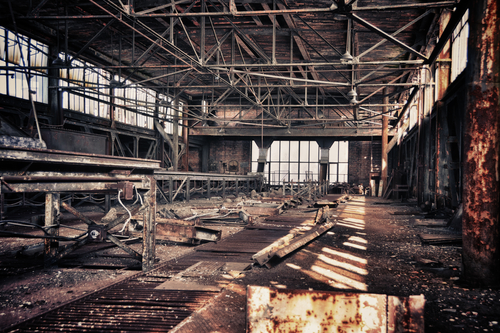
Certification of switchgear and equipment designed for explosive atmospheres
In a potentially explosive atmosphere, care must be taken to find proper conditions for the operation and assembly of equipment and its protection against overload. All these aspects affect the safety of human health and life.
In accordance with regulations
The operation of a facility is linked to the continuous effects on the surrounding environment and therefore an extremely important issue is the maintenance of proper conditions in that place.
Plant and equipment located in explosive atmospheres must therefore correspond to the guidelines laid down in the Regulation of the Minister of Economy (of 22 December 2005) on the essential requirements for the equipment and protection systems intended for use in potentially explosive atmospheres. Another important regulations are the ATEX directive and EN standards including the requirements identified in certificates, manufacturer’s recommendations and the declaration of conformity.
Potentially explosive atmospheres
An ATEX certificate is required in each potentially explosive atmosphere and applies to the installation of equipment with adequate parameters. In addition, such equipment should be marked with the explosion-proof parameters, certificate number, test station ID and IP protection rating.
The equipment must not be installed if any data inconsistency or errors in the certificate are found. After having corrected such inconvenience you can proceed with the assembly.
Safety first
It is worth noting that it is essential to observe the occupational health and safety and fire regulations in every workplace. Some industries are also required to meet special requirements relating to particular regulations. One such regulation is the ATEX directive required in potentially explosive atmospheres.
The rules relating to ATEX may relate to a part of a particular building (e.g. a warehouse), where loose material or flammable substances are stored. The Directive must be used especially in establishments such as service stations, woodworking shops, distilleries, sugar factories and the like.
The scope of the ATEX directive
The scope of the ATEX directive mainly includes guidelines for mechanical and electrical equipment but also for protection systems and components. ATEX indicates that each potentially explosive atmosphere must be accordingly marked and precisely delineated. It should be noted that a risk assessment must be carried out and an Explosion Prevention Document must be prepared for all workstations with a risk of explosion.
A safety assessment of the workplace may be carried out during the safety audit. At the beginning, it is checked whether the risk in the potentially explosive atmosphere has been properly assessed. All the related instructions and procedures are also reviewed. One of the steps of the inspection is also checking the method and condition of the use of particular equipment.
ATEX certificate
When placing equipment and parts thereof on the market, the manufacturer must issue a certificate of conformity relating to the use of the equipment in accordance with the requirements of the regulation. The certificate of compliance includes an exact description of the parts of devices and components and the conditions of installation of the parts in a way ensuring that the requirements for the final equipment are met.
The certificate issued by a notified testing body includes:
– certificate’s number,
– testing station’s name,
– certificate’s year of issue,
– ATEX symbol (i.e. compliance with the directive),
– testing station’s number (assigned by the EU),
– equipment’s name and type,
– manufacturer’s name and address,
– test report’s number,
– basic and detailed standards’ numbers,
– explosion-proof equipment marking,
– information relating to the X sign (additional requirements included in the annex),
– certifier’s signature, date of issue, testing station’s address and its mark.
Notifying bodies
In Poland, there are several bodies of this type that issue certificates for equipment of group I (concerning mining plants) and group II (concerning other explosive atmospheres).
As regards the documents of compliance with the Regulation of the Minister of Economy, they are issued primarily by the State Mining Authority or the Central Mining Institute.
Equipment that is produced in other EU member countries is marked with Ex, EEx and PMA Ex symbols. Such equipment does not require further tests to confirm compliance with the requirements of the ATEX 100 directive.
The user using a certified piece of equipment must note that the mark of approval for a product to work in one group refers to that group only. Thus it must not work in other groups of equipment.
The certification of switchgear and equipment for explosive atmospheres is intended to provide maximum protection for all employees who work in an area at risk of explosion. In such places, the ATEX certificate is a necessary directive indicating the specific risk. It is used in many industrial facilities.


 pl
pl  EN
EN  DE
DE  LT
LT  SV
SV  FR
FR  ES
ES  HU
HU  NO
NO  DK
DK  FI
FI  RU
RU 